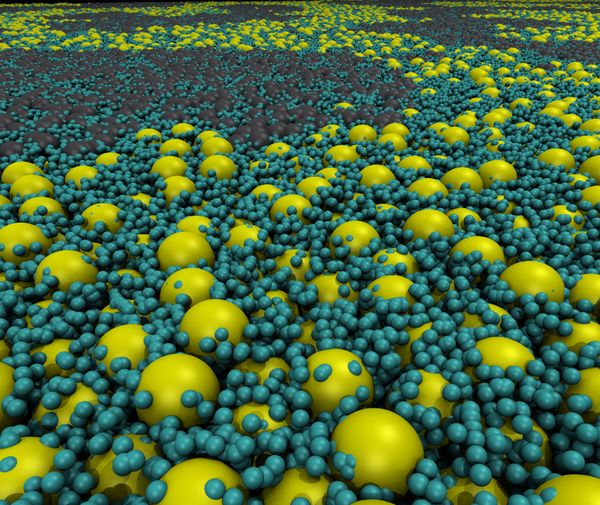MATERIALS SCIENCE AND CHEMISTRY
Phase Separation in Colloidal Suspensions
Principal Investigator:
Peter Virnau
Affiliation:
Institute of Physics, Johannes Gutenberg-Universität Mainz (Germany)
HPC Platform used:
JUROPA of JSC
Date published:
Colloidal suspensions are fluid materials which contain myriads of micrometer-size colloidal solid particles (shown in yellow in the simulation snapshot) in an atomistic or molecular solvent. (Small solvent particles are shown in blue and polymers in grey in the snapshot.) As emerging domain structures are many orders of magnitude larger than the particles, a team of scientists from the Institute of Physics of Johannes Gutenberg-Universität, Mainz, employ a multiscale approach, the so-called "multiparticle collision dynamics" method and study phase separation after a quench into the two phase region in a slit-pore geometry. The scientists find that the typical size of a domain grows as a power law of time, but the growth exponent crucially depends on the hydrodynamic boundary condition. This study is expected to ultimately help better control confinement effects on the processing of colloidal suspensions in the chemical and food industry.

© Johannes Gutenberg-Universität, Mainz
Full article in inSiDE, Vol. 10 No. 1
Scientific Contact
Dr. Peter Virnau
KOMET 331
Institute of Physics
Johannes Gutenberg-Universität Mainz
Staudingerweg 7, D-55128 Mainz
e-mail: virnau [@] uni-mainz.de
September 2013